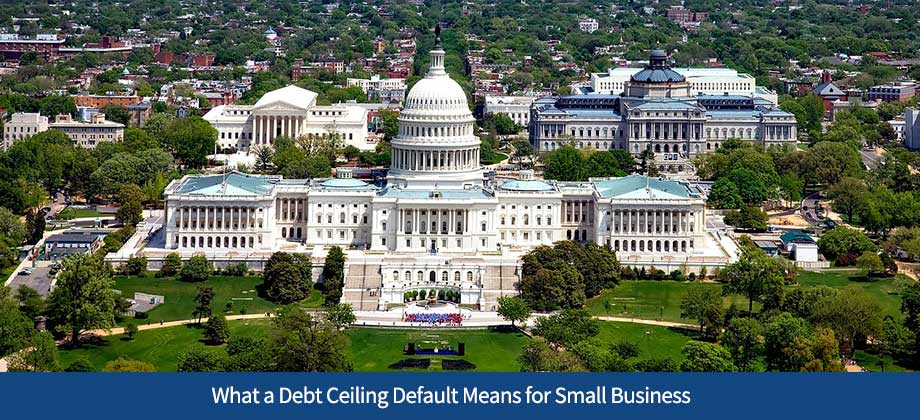What a Debt Ceiling Default Means for Small Business

The United States has never defaulted on its debt, yet here we are again… about to approach the debt ceiling and facing a government calamity if congress doesn’t take action by raising the debt limit. The uncertainty surrounding a potential debt ceiling crisis creates total chaos in the markets and economy in general, and the impacts on small business can be dire. While there’s little we can do ourselves aside from contacting our state and local representatives, it’s important to shed light on the consequences a debt default can have on SMBs across the country. Let’s assess.
Accessing credit is one of the biggest worries among business owners. Earlier this month, Goldman Sachs released the results of a recent survey of small business owners about a possible debt default—it found that 65 percent of respondents say they’ll be negatively impacted if Congress doesn’t raise the debt ceiling; additionally, “Of respondents who have applied for a small business loan in the past three months (17 percent), 61 percent have found it difficult to access affordable capital. Sixty percent said rising interest rates are impacting their ability to service existing debt.” All this comes down to confidence. The economy can be a fragile entity, and its success is heavily tilted toward the overall “vibe” people have about it. Stocks plunge when consumers and stockholders get spooked about the country’s financial strength; a loss of confidence of this magnitude has the potential result of higher interest rates and stricter lending rules.
Plunging into a true recession is something we and experts across the nation have been watching closely for months. Should the government default on its debt, it could finally trigger the recession we’ve been flirting with. According to Reuters, “Total government spending on average is about $525 billion a month. A big chunk of that, about $225 billion on average in the first quarter, is deficit spending. Hitting the debt ceiling would mean the government could no longer run that budget shortfall, delivering an immediate blow to millions of Americans who rely on government money directly or indirectly.” Government employees and pension-holders would either be left without a job or left without income. With the potential for millions of Americans to lose their jobs, a recession is sure to be triggered—and a bad one, at that.
A cashflow stoppage is another very dire consequence for small businesses with government contracts. Since a default would render the government unable to pay its bills, that means it wouldn’t be able to pay the businesses it has hired to do work. Or, if a company’s primary consumer is someone who relies on food stamps, they and their customers would suffer: the customer doesn’t get their food stamps, and the company doesn’t get the money from those food benefits. The economy, in many respects, would be at a standstill.
We’ve seen debt ceiling debacles in years past, but it doesn’t take the pain away from small businesses and consumers. Keep up with the latest news in the small business world with the Financial Pantry. And if you’re in need of cash in hand to carry your business through uncertain times, there’s no better partner than ARF Financial. Our business loans, lines of credit, and interest-only loans have helped thousands of small businesses meet their goals. Check us out and see how you can get funded in as little as 3 days—with no obligation to borrow and no hard credit pulls to submit an application, you’ve got nothing to lose and success to gain.

